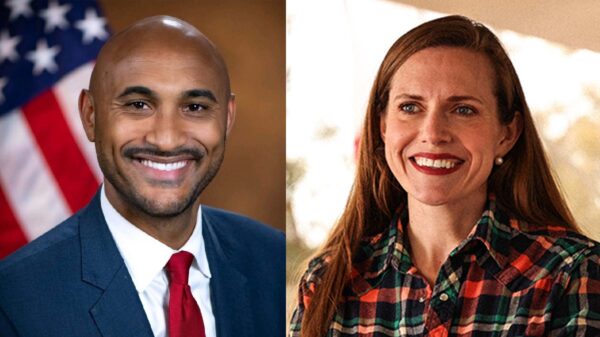No reporter has done more to chronicle the story of the Interstate 10 Mobile River Bridge and Bayway project than al.com’s John Sharp. Recently, he penned a piece entitled “How the I-10 project was killed,” which focuses on the public battle that led to the project’s demise.
Interspersed in the various reports on the bridge debacle are statements from political operatives and opportunists who worked to undermine the project. Along the way, those politicos who vowed to move the area forward caved to political pressure abandoning their previous support of the bridge project.
State Auditor Jim Zeigler was the most visible face of the opposition. But there was also South Alabama political operative Jon Gray and Dean Young, a campaign strategist who worked on Roy Moore’s failed 2017 U.S. Senate bid.
For over 20 years, the I-10 Mobile River Bridge and Bayway project has been a topic of heated discussion in Baldwin and Mobile Counties. Two years ago, it seemed as if the project was on track to become a reality. At the time, the bridge was estimated to cost between $800 million to $1.8 billion, but that figure wasn’t written in stone as ALDOT Director John Cooper said in 2017.
At the time, a majority of the political leaders in the area agreed that a toll would be needed to pay for the bridge.
Then-Baldwin County Commission Chairman Chris Elliott said in 2017, that he agreed with Cooper that tolls were “the right direction.” Two years later, Elliot, now a state senator, turned against the bridge he had once supported. Elliot is just one example of the many politicos who were for the bridge before they were against it.
In its last estimation, the River Bridge and Bayway would cost $2.1 billion, some $300 million over the initial estimates. But even that figure was never finalized because the project was effectively killed with a vote by the Eastern Shore MPO last month. Approval by the Mobile and Eastern Shore MPO was needed before ALDOT could receive a final bid which would have determined the cost of construction as well as the toll which was estimated between three and six dollars.
Like every political operation, a narrative must be established to stir support or opposition.
In this case, the opponents focused on the possibility of a $6 toll and the burgeoning expense of the bridge.
The self-appointed face of the resistance was Zeigler, who is well-known for his political activism, positioning himself as a waste cutter, an anti-tax advocate, toll hunter and many other things that bring him public attention.
As auditor, Zeigler has repeatedly used state resources and personnel to promote his various activities unrelated to his official duties — the bridge is only the latest. His personal assistant, who is a state employee, has sent many emails for these separate activities using state computers and other resources.
Arguably, Zeigler has spent more time working for causes with no relationship to his elected duties, which pays him around $80,000 annually plus benefits.
Shortly before joining the anti-toll movement, Zeigler surrendered his law license. He says it was voluntary, but others have cast doubts on his assertion.
A report by NBC 15 indicates Zeigler was embroiled in a legal issue pertaining to an elderly client and that the incident may have led to him surrendering his license. Zeigler disputed the claim.
Zeigler has publicly claimed credit for launching the Facebook group “Block the Mobile BayWay Toll.” However, in a conversation with APR, he said he didn’t start the group; instead, he climbed on board the movement in its early stages.
Who founded the Facebook page may be insignificant, but its supremacy in the fight against the toll bridge is not in dispute.
The Facebook group, “Block the Mobile BayWay Toll,” was created on May 12, 2019, it changed its name to “Block the Mobile Bayway Toll” on June 13, 2019. It appears the name was changed to correct a capitalization error.
As of last week, it had 55,139 members and grew by 10,000 plus members in the previous 30 days.
Along with residents from Alabama, it also boasts members from Magetan, Jawa Timur, Indonesia, North Dakota and other places outside of the state.
To grow from a few members to over 55,000 in just over a year is almost unheard of on Facebook.
As of 2017, Mobile County had a population of 413,955, while Baldwin counted 212,628 for a total of more than 600,000 residents.
Even if all the members were from the two counties, it would be less than 10 percent of the population but enough to frighten a local politician.
A meeting of anti-toll advocates sponsored by the Common Sense Campaign TEA Party led by Lou Campomenosi attracted some 150 attendees with about the same number turned away due to the venue’s small seating capacity. Of the over 50,000 members of the “Block the Mobile Bayway Toll,” only a small fraction showed up for the gathering.
Campomenosi, who moderated the event, was listed as an administrator on the “Block the Mobile Bayway Toll” Facebook group. He is no longer numbered among the administrators.
Zeigler claims his opposition group is “well-funded,” but has also said it is a grassroots movement. Authentic grassroots campaigns are generally cash poor and people rich, but Zeigler would have people believe that his organization is both.
When asked how the opposition was well funded, Zeigler pointedly failed to respond.
The No Tolls Political Action Committee created on Go Fund Me by Zeigler has raised $5,289 from 130 donors since its inception in Aug. 9, 2019.
Joining Zeigler in his efforts to derail the toll bridge is political operative Gray who became a player in the bridge story; first as a consultant for ALDOT and then a harsh critic of the project. Gray is quoted in several news stories about the bridge.
For almost four years, Gray was a contract consultant at ALDOT. In just over three years, ALDOT paid Gray around $1.5 million according to state records. He lost his contract after he worked on Scott Dawson’s unsuccessful gubernatorial challenge to unseat Gov. Kay Ivey.
Gray, according to two individuals close to him, has a consulting agreement with Mobile-based Volkert Engineering who lost a contract on the bridge to its rival, Thompson Engineering.
Perry Hand until recently was CEO and chairman of the board at Volkert. Hand is known in many political circles for his failed attempt to keep Billy Canary atop the Business Council of Alabama. A battle Hand would eventually lose.
Toward the end of the bridge fight, Young, a political fixture in South Alabama, came forward with a poll which he said was self-financed. Young’s poll showed that 77 percent of registered voters in Mobile and Baldwin counties did not support the toll plan. WT&S conducted the survey according to Young.
The Athens, Alabama-based WT&S is led by John Wahl who was also a pollster for Moore’s last senate campaign. In conjunction with Breitbart News, WT&S conducted a poll that showed Moore leading Doug Jones, the eventual winner, by six points.
Wahl and Young’s paths crossed during Moore’s Senate bid as did Wahl and Zeigler during a fight over raising taxes to support Athens city schools.
Zeigler joined Wahl in 2015, to rage against an Athens ballot measure to finance public works projects to improve public education in the city. Wahl and Zeigler were successful in defeating the measure.
Both Zeigler and Gray received considerable press coverage after bridge meetings in Baldwin and Mobile Counties.
After the Mobile County MPO temporarily removed the interstate bridge project from the list of local transportation priorities, Zeigler said, “If we had not formed up this group [Block the Mobile Bayway Toll] and got organized with these 52,000 people, this program with the toll would’ve slid through and with very little notice.”
At the same hearing, Gray predicted that the meeting of the Eastern Shores MPO would “nail the coffin,” on the bridge project. Gray was right in his prediction.
The reason the “the toll would’ve slid through and with very little notice,” as Zeigler stated is because the state Legislature, the Baldwin and Mobile County delegation and others in the area were for the toll bridge.
For two years, some of the same people who helped kill the bridge lobbied U.S. Senator Richard Shelby to find federal funding for the project which he accomplished.
Then-Baldwin County Commissioner Elliot was part of the delegation that sought Shelby’s help. As part of that body, Elliott was involved in the planning for the I-10 bridge including the discussion to toll. Elliott again is merely an example of those who would work to build the bridge and then abandon the project.
According to a report by Fox10, Elliott knew that the federal match would be much less than for previous projects and supported a toll to make up the difference.
“It used to be an 80/20 federal to state match, and now we have almost reversed that to be a 20/80,” Elliott said. “The local money in the 80 percent split would come from bonds, some state money, private investor money, and tolls.”
Gov. Kay Ivey has declared the I-10 bridge dead, and by all accounts, it will be years if not a decade or more before another opportunity arises like the one Zeigler and his fellow travelers destroyed.
Even now Zeigler claims he will keep the “Block the Mobile Bayway Toll” Facebook group alive to fight on other fronts.
He is now comparing the toll challenge to the Civil Rights movement.
“The people rose up, and I’ve never seen anything like it since the Civil Rights Movement of the 1960s,” Zeigler said. “I wasn’t involved in that, but I was a young student watching it.”
What was nearly 25 years in the making was torched by a few individuals who convinced a handful of politicians to run scared rather than work toward a solution in the best interest of their constituents.























































